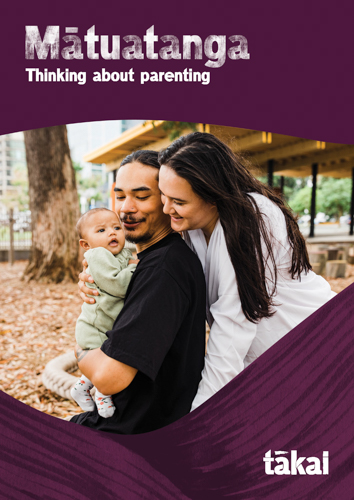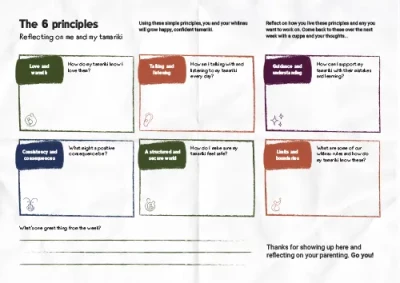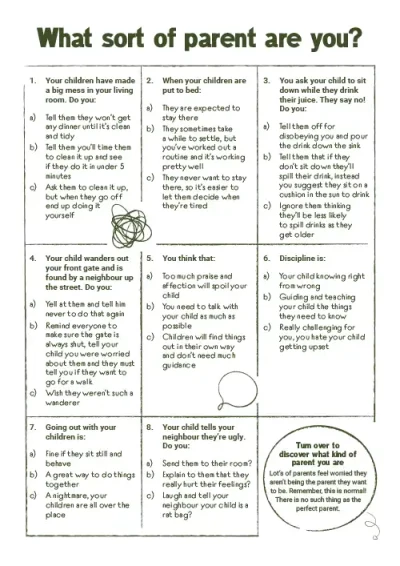
Being the parents we want to be
Understanding that what happens in our childhood has an impact on how we raise our children.
Learning goals
- Make links between how we were parented and how we parent.
- Understand that what happens during childhood has a lifelong effect on children’s futures.
Background information
When parents make sense of the way they were parented, they’re more likely to make ‘conscious’ parenting decisions for their whānau. And in some cases, they’ll parent their children quite differently to how they were parented.
Introduce the session
Begin the session with an appropriate settling in time – for example, karakia, gathering thoughts, waiata, simple hellos. This is an opportunity for people to share what’s going on for them, if they wish.
Introduce the topic
- Today we’re going to spend time thinking about the kind of parents we want to be.
- We’ll be exploring what it was like for us growing up, and what effect that can have on how we raise our own children.
Explore parenting styles
Introduce the ‘rock’, ‘paper’ and ‘tree’ parenting styles.
Parenting styles – Paper, rock, tree
- Give an example: A twelve-month-old baby is in the high chair and dropping food on the floor. What might the rock, tree and paper parent each do in response?
- Ask participants to make a circle, then to step in if one of their parents was a ‘rock’, and to stay in if they’re a rock-style parent. Ask why, or why not?
Activities to choose from
- Recommend that participants read the rest of ‘Thinking about parenting’ and choose an idea to try.
- Read the legend of Tāne Mahuta and the creation of the first woman on page 42 and 43 of the Whakatipu booklet Te Kākano.
- As a group, create a ‘parent’ using playdough. Each participant makes a part of the body (head, torso, 2 arms, 2 hands, 2 legs, 2 feet). Participants take turns to put their parts together and as they do so, name a quality or skill the parent needs. Participants listen to the qualities and skills and have the opportunity to make a playdough gift to the parent of anything else that will be helpful.
- Read and discuss Whakatipu Te Pihinga Booklet 1, page 28, and talk about ways participants can introduce baby to their family, so pēpi knows who they belong to.
- Look at Whakatipu Te Pihinga Booklet 2, page 10 and make a simple pepeha.
- Make the link to brain development – our experience of being parented ‘wires’ our brain and makes the pathways in our brain for parenting.
Workshop materials
- flipchart
- sticky notes
 pdf 11 MB
pdf 11 MB


